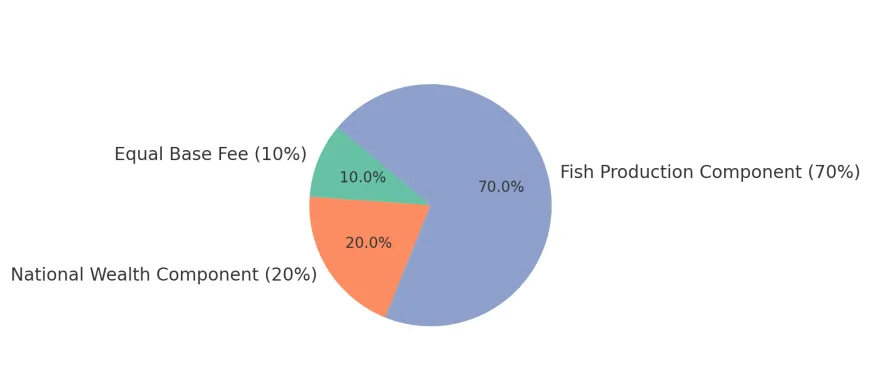WCPFC Budget Summary
The Western and Central Pacific Fisheries Commission develops its annual budget according to detailed Financial Regulations, ensuring transparency, accountability, and fairness.
Each year, the Secretariat prepares a draft budget estimating expected income and planned expenditures for managing fisheries, scientific research, compliance monitoring, and administrative operations. This draft budget is reviewed by the Finance and Administration Committee (FAC) before it is formally approved at the Commission's Regular Annual Session.
Member Contributions Calculation

- Equal Base Fee (10%): Each member pays an equal base fee of 10%.
- National Wealth Component (20%): Contributions are based on an equal weighting of Gross National Income (GNI) and per capita GNI (calculated on a three-year average). Small Island Developing States have a capped contribution.
- Fish Production Component (70%): This contribution reflects each member’s catch volume within the Convention Area, based on a three-year average. A discount is applied for catches by developing States or territories within their own Exclusive Economic Zones (EEZs), and special considerations are given to catch taken in the area of the Convention that overlaps with the Inter-American Tropical Tuna Commission (IATTC).
Special Funds and Accounts
- Special Requirements Fund: Established to support developing State members, particularly Small Island Developing States, in capacity-building activities such as human resources development, technical assistance, technology transfer, and improving fisheries management. More information is available on the Special Requirements of Developing States page.
- Working Capital Fund: Maintained to cover normal operating expenses before contributions are received, and to manage unexpected financial situations. It is funded by surplus appropriations and voluntary contributions from members.
- Special Funds and Trust Funds: Created to manage voluntary contributions for specific purposes as designated by donors, allowing flexibility in financing targeted programs or activities. More information is available on the Special Requirements of Developing States page.
Information on the Commission's budget and financing discussions can be found on the Finance and Administration Committee (FAC) meeting page. Note that FAC meetings before 2020 can be found in the meeting documents of the annual Commission meeting on the Regular Sessions of the Commission webpage.